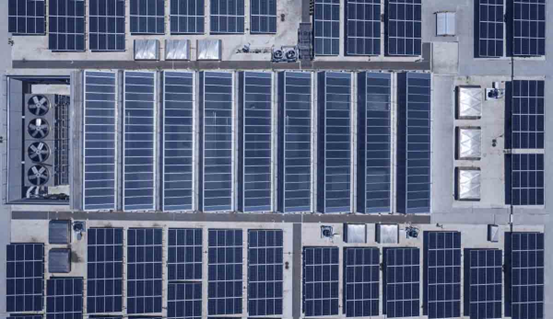In recent years, the residential solar energy sector has experienced unprecedented growth, becoming an integral part of the global shift towards sustainable and renewable energy sources. As technology continues to advance, the future of residential solar holds even greater promise, with innovations that not only enhance efficiency but also make solar energy more accessible and cost-effective for homeowners around the world.
The Evolving Landscape of Residential Solar Power
Advancements in Solar Panel Technology
The heart of any solar energy system is its solar panels. Recent breakthroughs in solar panel technology have significantly increased their efficiency, making them more productive and cost-effective. The development of next-generation materials, such as perovskite solar cells, has shown great potential to further improve efficiency levels. These materials promise higher conversion rates and lower production costs, paving the way for more widespread adoption of residential solar systems.

Integration of Energy Storage Solutions
One of the challenges of solar energy has been its intermittent nature, dependent on sunlight availability. However, the integration of advanced energy storage solutions, like lithium-ion batteries, is changing the game. Homeowners can now store excess energy generated during the day and use it during periods of low sunlight, such as at night or during cloudy days. This not only maximizes the utility of residential solar systems but also reduces reliance on the traditional energy grid.
Smart Homes and Energy Management Systems
The future of residential solar is intricately tied to the concept of smart homes. The integration of solar energy with intelligent energy management systems allows homeowners to optimize their energy consumption. Smart home technologies can automatically adjust lighting, heating, and cooling systems based on real-time solar energy production and consumption patterns. This not only enhances energy efficiency but also offers homeowners greater control over their energy usage.
Cost Reduction and Increased Affordability
Historically, the upfront costs associated with installing solar panels have been a barrier for many homeowners. However, ongoing advancements in manufacturing processes and increased economies of scale are driving down the cost of solar panels. Government incentives and tax credits for renewable energy installations further contribute to making residential solar more affordable. As technology continues to mature, we can expect a continued downward trend in costs, making solar energy accessible to an even broader range of households.
Community Solar Initiatives
The future of residential solar is not limited to individual homes. Community solar initiatives are gaining traction, allowing neighborhoods or communities to collectively invest in and benefit from shared solar projects. This approach not only fosters a sense of community involvement but also addresses challenges faced by homeowners with shading issues or those living in areas with restrictive homeowners' associations. Community solar offers a scalable and inclusive model for solar energy adoption.
Increased Emphasis on Aesthetics and Integration
As solar energy becomes more prevalent, there is a growing emphasis on the aesthetic integration of solar panels into residential architecture. Innovations such as solar roof tiles and transparent solar windows are emerging, providing homeowners with options that seamlessly blend renewable energy technology with the overall design of their homes. This shift towards aesthetically pleasing solar solutions is likely to encourage more homeowners to embrace solar energy without compromising on the visual appeal of their residences.
Environmental Impact and Sustainability
Beyond the economic and practical advantages, the future of residential solar solutions also places a strong emphasis on environmental sustainability. The reduction of carbon footprints and mitigating climate change are driving forces behind the increasing adoption of solar energy. As technology continues to evolve, the manufacturing processes for solar panels are becoming more environmentally friendly, further enhancing the overall sustainability of residential solar systems. This commitment to sustainability extends beyond the energy generation phase, encompassing the entire life cycle of residential solar solutions and their positive impact on the environment.

Conclusion
The future of residential solar is undeniably bright, marked by continuous innovation, increased efficiency, and growing affordability. As we move forward, it is clear that solar energy will play a pivotal role in meeting the world's growing energy needs while minimizing environmental impact. Homeowners stand to benefit not only from reduced energy costs but also from the satisfaction of contributing to a more sustainable and eco-friendly future. The journey towards a solar-powered residential landscape is well underway, and the possibilities for a cleaner, greener future are limitless.
